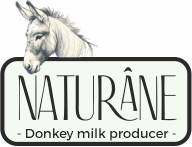Cart
0
(empty)
No products
Free shipping!
Shipping
0,00 €
Tax
Total: 0,00 €
Prices are tax included
Product successfully added to your shopping cart
Quantity
Total
There are 0 items in your cart. There is 1 item in your cart.
Total products
(tax incl.)
Total shipping (tax incl.)
Free shipping!
Tax
0,00 €
Total
(tax incl.)
HISTORY OF DONKEY MILK THROUGH THE AGES
It’s famous since ancient times. The earliest historical records date back to 2500 BC. They were found on Egyptian bas-reliefs, but it was not until the Renaissance that this milk gained a real scientific consideration.
SOME HISTORICAL HIGHLIGHTS:
- It is said that Cleopatra, queen of Egypt, maintained her beauty and the youth of her skin in baths of donkey milk. The daily care required a herd of about 700 donkeys.
- The Romans also used donkey milk for its therapeutic properties. Poppea, the wife of the Emperor Nero, used this precious liquid to keep shine and suppleness of her skin. Messalina, Roman empress, the wife of Emperor Claudius I (10 BC-54 AD) used facial masks with donkey milk soaked on bread slices on.
- François 1er, King of France, exhausted by wars and excesses, followed the advice of a doctor native of Constantinople. He made a cure of donkey milk, which was miraculous to him, in his words: "One day from a donkey , milk restored my health. And I have to this circumstance, benefit donkeys at the Faculty”.
- Pauline, sister of Napoleon Bonaparte, took baths of donkey milk. This was considered as scandalous at a time when the milk was very rare.
- In the 19th century, donkeys wandered in the streets of major European cities and were led by merchants who harangued the population shouting "Donkey milk, good donkey milk! The elegant high society regularly consumed this precious beverage, but poor families reserved that to a elixir sick child or a weakened old man. During this same period, the donkey milk begins to be regularly used in maternity hospitals. In fact, the donkey is easily used to feed infants, who drink directly from the udder.
- Donkey milk was marketed to the early 20th century to feed orphan babies and care for sickly children, the sick and the elderly. In the tradition of this use of donkey milk, asineries were born in Italy, France, Belgium, Switzerland, Germany ... The current success experienced by these particular farms that exploit donkey milk confirms ancestral reputation of the product and the importance of its vital properties. Centuries have no way affected its qualities. Today's scientific community recognizes the merits of this legacy: donkey milk is an incomparable substitute for human milk and a natural product with food and cosmetic properties as rare as precious.
